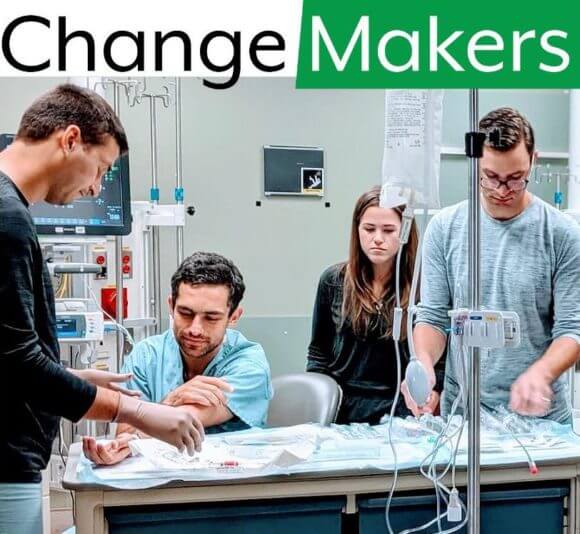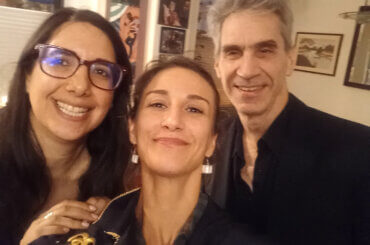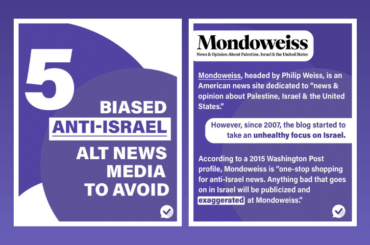| We need your help! Generous donors have offered a challenge this month: if we raise $100,000 from you and other supporters by December 31, they will match it with an additional $100,000. Please give today to unlock these much-needed funds. And read on to see how Dr. Tarek Loubani values Mondoweiss and why he asks for your help. |
When we first heard about Dr. Tarek Loubani, a Palestinian-Canadian physician, he was in Gaza field testing 3D printed tourniquets. Over a year later, Tarek is still working with the Glia project to bring Gaza’s first responders basic tools for emergency care. The team’s tourniquets represent 100 percent of the stock used today by EMTs across Gaza. Once Gaza has enough stockpiled in case of a crisis, the team plans to produce much-needed stethoscopes and otoscopes.

On May 14, 2018, I was a field physician on the border between Gaza and Israel at the Great March of Return. The March consists of popular mass protests by unarmed people demanding their basic human rights on land that Israel withdrew from officially over a decade ago. The marchers have been met by hails of bullets week after week. You already know these facts, but they remain shocking despite Gazans just having marched in their 83rd protest since the start of the Great March.
On that day, I heard a loud bang and found myself on the ground yelling—shot in the legs by an Israeli soldier. The bullet went through my left calf and pierced my right knee. My injuries were minor compared to so many others shot that day. Medics treated me immediately and I recovered well. However, my injury is an example of what a UN investigation found to be Israel’s deliberate targeting of both journalists and medical personnel—all of whom wear gear and clothing clearly signaling our protected status.
When the March of Return began, I was dizzied by the high casualty count. I had a hard time understanding what was happening in Gaza. I turned to Mondoweiss, one of my regular news sources, and what I read there helped me orient myself to the broader context and international importance of this moment. I read the global reactions and organizers’ thoughts from the ground. I started to understand how those participating in this march were regular people putting themselves at risk to fight for their dignity and human rights.
Like most of those at the Great March, I am a refugee. But unlike most of them, I don’t live in Gaza. I am a Canadian citizen who lives and works in London, Ontario. I have been working for years with a team of medical and engineering personnel in Gaza to develop 3D-printed medical supplies. I went to Gaza in spring 2018, as thousands gathered at the border, to deploy and test our 3D-printed tourniquet.
The day I was shot, Israeli forces using live ammunition killed dozens of people and wounded hundreds. Over and over, we saw severely wounded protesters crawling to safety, where we applied the 3D printed tourniquets we developed. The care the paramedics provided no doubt prevented countless deaths that day. Our medical team took every safety precaution: We stayed away from the protest area, wore clearly identifiable medical garb, approached carefully when needed with our hands up, and made no attempt to treat patients on site. Yet Israeli soldiers shot 17 paramedics that day.
One medic was killed: Musa Abuhassanin, the paramedic who treated me one hour before he was fatally shot. Musa was a warm and caring person whose infectious laugh lifted us all in difficult times. His work helped not only those he treated directly, but thousands more: he identified a flaw in the tourniquet design that we were able to fix.
Musa was not the last medic killed during the Great March. As Mondoweiss reported, 21-year-old nurse Razan Al-Najjar was shot in the chest June 1, 2018. B’Tselem’s investigation concluded that Razan was “deliberately and fatally shot.” Sajed Mizher and Mohammed al-Jadili were also killed in the past year while providing care as medics in the field. The report released in February 2019 by the United Nations-charged independent international commission of inquiry stated that “The commission found reasonable grounds to believe that Israeli snipers intentionally shot health workers, despite seeing that they were clearly marked as such.”
My experience in the field last year has made me even more grateful for Mondoweiss’s excellent and courageous work reporting from the frontlines and back halls of Israel and Palestine. These dedicated journalists tackle the urgent need to inform and educate the public about important facts that would otherwise be ignored.
Please join me and support Mondoweiss today by donating generously to their excellent work.
If you value Mondoweiss as Tarek does, please join hundreds of supporters and invest in our journalism today. Spreading word to people around the world is vital so that those wounded and killed in the Great March of Return will not have suffered in vain. We have only a few weeks for you and others to match the $100,000 challenge fund offered to enable Mondoweiss’s work to continue and grow in 2020.


